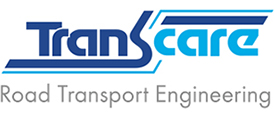The landscape of vehicle diagnostics is rapidly evolving, and truck diagnostic systems are at the forefront of this transformation. These advanced systems are essential for maintaining the health and efficiency of modern trucks, ensuring they remain operational and safe. As technology continues to advance, the future of truck diagnostic systems promises to be even more beneficial, offering even better systems.
Here is how we expect truck diagnostics to change.
Advancements in connectivity and remote diagnostics
One thing we are likely to see more of in the future is connectivity and remote diagnostics. With 5G technology becoming more widespread, the speed and reliability of data transmission will improve significantly. This allows fleet managers to gain more comprehensive remote diagnostics to give technicians the ability to diagnose and repair issues without the truck even needing to visit a service centre.
Remote diagnostics can save time and money by reducing costs associated with towing and roadside repairs. These truck diagnostic tools will be essential in allowing fleet managers to monitor their entire fleet from a centralised location and ensure that all trucks are operating as efficiently as possible.
Enhanced cybersecurity measures
As truck diagnostic systems become more connected, cybersecurity becomes an even larger concern. This means that we will need to see future diagnostic tools that have robust security measures to protect against cyber threats. Truck diagnostic tools will need advanced encryption, secure communication protocols, and regular software updates to safeguard against these potential vulnerabilities.
Integration of IoT and Big data
One significant trend impacting the future of truck diagnostic systems is the integration of the Internet of Things (IoT) and big data analytics. When connecting trucks to the internet, IoT enables continuous monitoring of vehicle performance and health. This allows for proactive maintenance due to real-time data collection where issues can be identified before they become major breakdowns.
We can also expect to see further enhancement of the capability to analyse vast amounts of data from multiple vehicles. The analysis will uncover patterns and trends and offer insights that would previously have been unattainable. For example, predictive maintenance algorithms can forecast when a component is likely to fail, and allow for timely replacements and reducing downtime. At Transcare, we aim to be ahead of the advancements in truck diagnostic tools to ensure our clients can keep their fleet maintenance optimised as much as possible. If you would like to learn more about our vehicle diagnostics and truck diagnostic systems, get in touch today.








